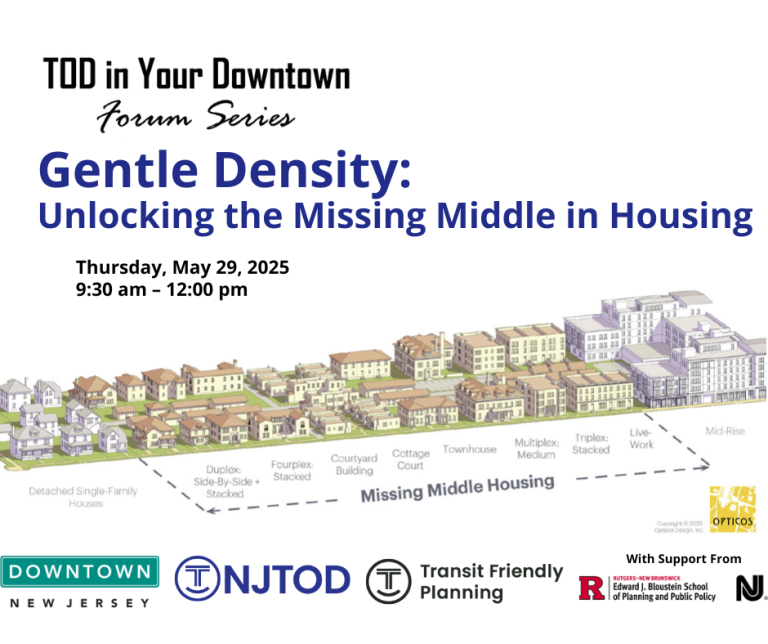The Cannabis Industry and Municipal Planning
By Chuck Latini Jr., PP/AICP
Partner, InFIELD Consulting
March 3, 2023
Cannabis can be a complex issue for municipalities to navigate without special guidance. Balancing both the real and perceived concerns of our residents with zoning regulations that are responsive to the desires of the business community and advocates is the work of planners. To sort out the plethora of misinformation fueling the cannabis debate, the municipal planning process can be utilized to employ open dialogue and education through thoughtful discussion.
The very basic component necessary to ignite this industry – proper planning. Towns that have performed the planning process well certainly made different decisions than those that let dissent and fear dominate the conversation. While this article is not an advocacy piece for cannabis per se, it is informed through experience and working with expert groups, such as the Cannabis Advisory Group, while also understanding the rules and regulations that the NJ Cannabis Regulatory Commission is working within.
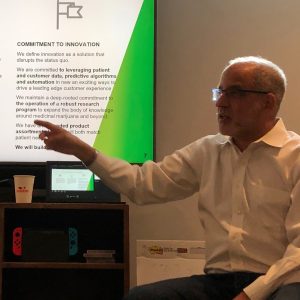 Every community has the right to make their own decisions. In a home rule state like NJ, we cannot rely on the state itself to tell towns what to do. As a planning practitioner working in New Jersey over the past 25 years, I can tell you that significant technical resources are available to assist local conversations. Your planners don’t have to be experts in cannabis, they just have to bring the right people into the conversation.
Every community has the right to make their own decisions. In a home rule state like NJ, we cannot rely on the state itself to tell towns what to do. As a planning practitioner working in New Jersey over the past 25 years, I can tell you that significant technical resources are available to assist local conversations. Your planners don’t have to be experts in cannabis, they just have to bring the right people into the conversation.
First, let’s will break down some of the reasons why a community may or may not consider allowing cannabis sales, cultivation, and/or manufacturing.
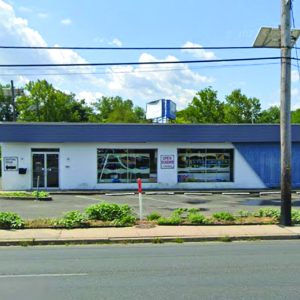
Vacant Commercial Property
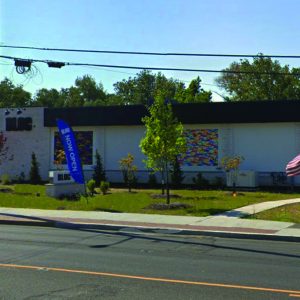
Commercial Property Revitalized with Cannabis Storefront
Some of the reasons a town may consider cannabis vary depending on the specific circumstances of each town. However, some reasons include:
- Medical benefits: Cannabis has been used for medicinal purposes for centuries and provides relief for patients with various conditions, including chronic pain, anxiety, and epilepsy.
- Increased tax revenue: Cannabis can generate significant tax revenue that can be used to fund schools, roads, and community development.
- Economic development: Cannabis can create jobs, including positions in trades, sales, security, marketing, agricultural and manufacturing. Cannabis attracts ancillary businesses and brings increased economic activity that may support the local economy.
- Consumer safety: Regulation ensures that products are safe, accurately labeled, and free from contaminants, thus allowing adults the freedom to make their own choices in a safe and regulated environment.
- Social equity: Legalization can help reduce racial and social disparities in drug enforcement and can provide opportunities for legacy operators and minority-owned businesses.
- Reduced law enforcement costs: Legalizing cannabis can reduce law enforcement costs associated with prosecuting non-violent drug offenses and can help reduce the amount of illegal activity in the town.
- Public opinion: Public support for the legalization of cannabis is on the rise.
To maintain balance, here are some reasons why a community might be reluctant to allow cannabis in their town:
- Health: Some communities have concerns about the health effects of heavy consumption, particularly in young people.
- Safety concerns: There may be concerns about its potential impact on public safety, and/or the community may lack the resources to regulate its use and prevent its sale on the black market.
- Negative stereotypes/stigma: Many detractors, especially those within our older generations, still view it as a dangerous substance, thus driving social stigmas.
- Religious or cultural beliefs: Some may have beliefs that prohibit the use of cannabis or other intoxicants.
- Concerns over addiction: There are some concerns about the potential for cannabis use to lead to addiction, particularly among vulnerable populations, such as young people.
- Workplace: Employers may be concerned about the impact of cannabis use on productivity and safety, or use on the job.
While these reasons for and against are not exhaustive, a community must foster dialogue to sort through both the real and perceived notions related to cannabis.
Let us say you have decided to jump in…
From a planning and zoning perspective there are distinct differences in the zoning approach between retail and cultivation/manufacturing due to the nature of the activities involved within each. The very basics are included here:
Retail
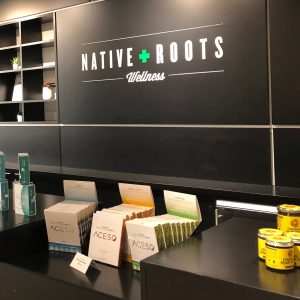 Typical retail stores can range from 1,000 – 10,000 square feet. In planning for cannabis retail, some of the key factors to consider include the location of the store, parking, proximity to sensitive land uses, and security. The design of the store, including the layout and decor, is also an important consideration, as it can impact the customer experience and the character of the district itself.
Typical retail stores can range from 1,000 – 10,000 square feet. In planning for cannabis retail, some of the key factors to consider include the location of the store, parking, proximity to sensitive land uses, and security. The design of the store, including the layout and decor, is also an important consideration, as it can impact the customer experience and the character of the district itself.
Cannabis retail behaves like a typical retail operation; however, you should work closely with your dispensary operators to ensure the character of the community is matched by the ethos of the operator. Some dispensaries look like convenience or package good stores, while others look like high-end spas, wellness centers, and even pharmacies. Given state regulations, there is minimal to no odor concerns in retail operations.
Cultivation/Manufacturing
Cultivators and manufacturers come in many shapes and sizes. From 2,500 – 200,000+ square feet. Key considerations include the location of the facility, security, lighting/energy use, odor control, irrigation, wastewater, and pest control. Cultivation involves managing the growth cycle while ensuring compliance with health, safety, and environmental regulations. While cannabis cultivation and manufacturing behave as a typical industrial/agricultural operation, environmental controls must be addressed.
Many of our Downtowns will likely focus on retail, although some do have areas where cultivation and manufacturing could be a consideration as well. Regardless, there is no “one size fits all” approach within our 564 communities.
Some additional thoughts that municipalities should consider when deciding HOW to allow cannabis include:
- Licensing and Permits: Establishing a local process does not have to be burdensome. Many towns are meeting with their prospective operators to forge partnerships that include medical research and development interests, local participation/ownership, as well as community and workforce development initiatives.
- Local Market Demand: Understanding the local market may include the number and location of existing dispensaries, projected demand, as well as proximity and distance requirements in zoning necessary to avoid saturation and stigma.
- Social Equity: Ensuring that underrepresented groups have opportunities to participate in this industry is on all of us. When looking at the licensing process, community development initiatives can address this through local endorsement.
- Public Safety: Establish requirements for security and safety measures, including measures to prevent diversion, sales to minors, and close coordination with local enforcement.
- Education and Outreach: Ensure that residents are informed about the truths behind the potential benefits and risks of cannabis and that they understand the regulatory framework in place.
- Taxation and Revenue: The potential tax revenue generated by cannabis is fairly large. How that revenue will be used to benefit the community should be considered.
- Employment: Understand the potential job creation and economic benefits that may accrue to the community and hold the operator to local hiring priorities.
- Public Opinion: Soliciting input from community members and businesses is key to ensuring those who do not normally participate in policy discussions are included.
Finally, within the current wave of municipal uncertainty, the illicit market grows and continues to challenge implementation of the regulated industry. Difficult to implement government social justice initiatives that lack a comprehensive planning approach will continue to frustrate municipal government, and the lack of properly zoned areas will exacerbate basic real estate supply and demand in both costs and overall availability.
The NJ market must continue to strive for comprehensive inclusivity through opportunities and assistance made available to the very same folks that may challenge it due to our long history of oppressive enforcement. While the NJ Economic Development Authority and Business Action Center are developing programs, it is up to all of us to consider how we can balance the entirety of the system for fair and equitable access, whether your town is in or out.
Chuck Latini has been a land-use planner in New Jersey for 25 years working for state and local government in redevelopment and transit-oriented development as well as private practice. He has been following the cannabis debate since New Jersey entered the medical space in 2012. As an advocate for medical cannabis he participated in legislative discussions as well as the rule-making process – primarily from a municipal planning perspective. He is a Director with the Cannabis Advisory Group and has participated in many Townhall discussions in addition to helping well-qualified cannabis operators become operational through the application process through his extensive experience in real state, land-use entitlements, and community/economic development initiatives.



